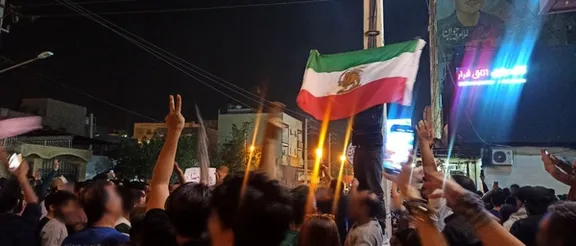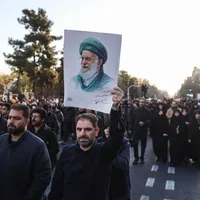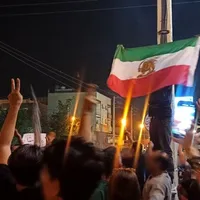Veteran theocrat Ali Khamenei is Iran's ultimate decision-maker on all matters foreign and domestic, leaving the hapless relative moderate attempts to manage serial crises not of his own making.
Doubts about his ability to tackle these problems are being voiced across Iran’s political spectrum, with commentators warning that such skepticism could weaken the government’s stability and decision-making.
Last week, both the hardline daily Kayhan and the reformist weekly Tejarat-e Farda published sharp critiques of Pezeshkian’s leadership.
The latter opened its attack with a provocative headline. “Has Pezeshkian’s Political Life Come to an End?” asked editor-in-chief Mohammad Taheri.
“Since the start of his government in July 2024, Pezeshkian has faced multiple crises,” Taheri wrote. “Although he did not create them, the way he responded revealed flaws in his management style and weaknesses in his performance.”
The editorial was reprinted by several outlets, including Tehran’s leading economic daily Donya-ye Eghtesad, throughout the week.
Taheri reminded readers that Pezeshkian won the presidency by a narrow margin of three million votes over ultraconservative Saeed Jalili, largely on promises to lift sanctions, ease international tensions and expand social freedoms.
‘Public disillusioned’
The president’s record on the latter is easier to defend, marked by his refusal to enact the so-called Chastity Bill that sought tougher punishments for defying Iran’s Islamic dress code.
On the former two, however, Taheri saw nothing but failure. “Those who voted for him expect a clear roadmap for the country’s future,” he wrote, predicting more hardship for ordinary Iranians with the return of sweeping UN sanctions.
Taheri further warned that Pezeshkian’s social capital is rapidly eroding, as many of his supporters grow disillusioned by his repeated retreats in the face of radical opposition.
The most consequential came last month, when supreme leader Ali Khamenei ruled out US talks in a televised speech just as Pezeshkian was en route to New York, effectively torpedoing any prospect of a thaw with Washington that might have forestalled sanctions.
‘Calls for resignation’
The moderates’ critique was uncharacteristically echoed by Tehran’s loudest hardliners.
“It appears Pezeshkian’s future will be far more difficult than his past,” Kayhan’s editorial read. “He is confronting a multitude of social, political and economic crises that have deepened public dissatisfaction with his performance.”
The paper—whose editor is appointed by the Supreme Leader—had a stark warning for the president: “If he fails to offer practical solutions to ease economic pressures and restore public trust, his position will likely weaken further.”
“Former supporters are now calling for his resignation,” the editorial asserted.
The elephant in the room
The moderate outlet Khabar Online retorted on October 8 that Kayhan is seeking to shape public opinion in favor of an early end to Pezeshkian’s presidency, paving the way for a hardline resurgence in the next election.
The site quoted reformist figure Mostafa Hashemi Taba, who accused hardliners of helping the “enemies of the state” to score factional points.
“Hardliners are a minority, as last year’s election results showed. They want to destroy the country, and intelligence agencies should keep a close watch on them,” Hashemi Taba said.
Conservative commentator Naser Imani bashed both hardliners and reformists for their attacks. Undermining the government, he told Khabar Online, ultimately weakens the nation “as bigger, harsher waves approach.”
True to form, few in this debate dare to acknowledge where real authority lies: with the Supreme Leader and his entrenched network of military and security power.
The president, be it Pezeshkian or any successor, remains expendable, a convenient target in a room where no one dares acknowledge the elephant.






